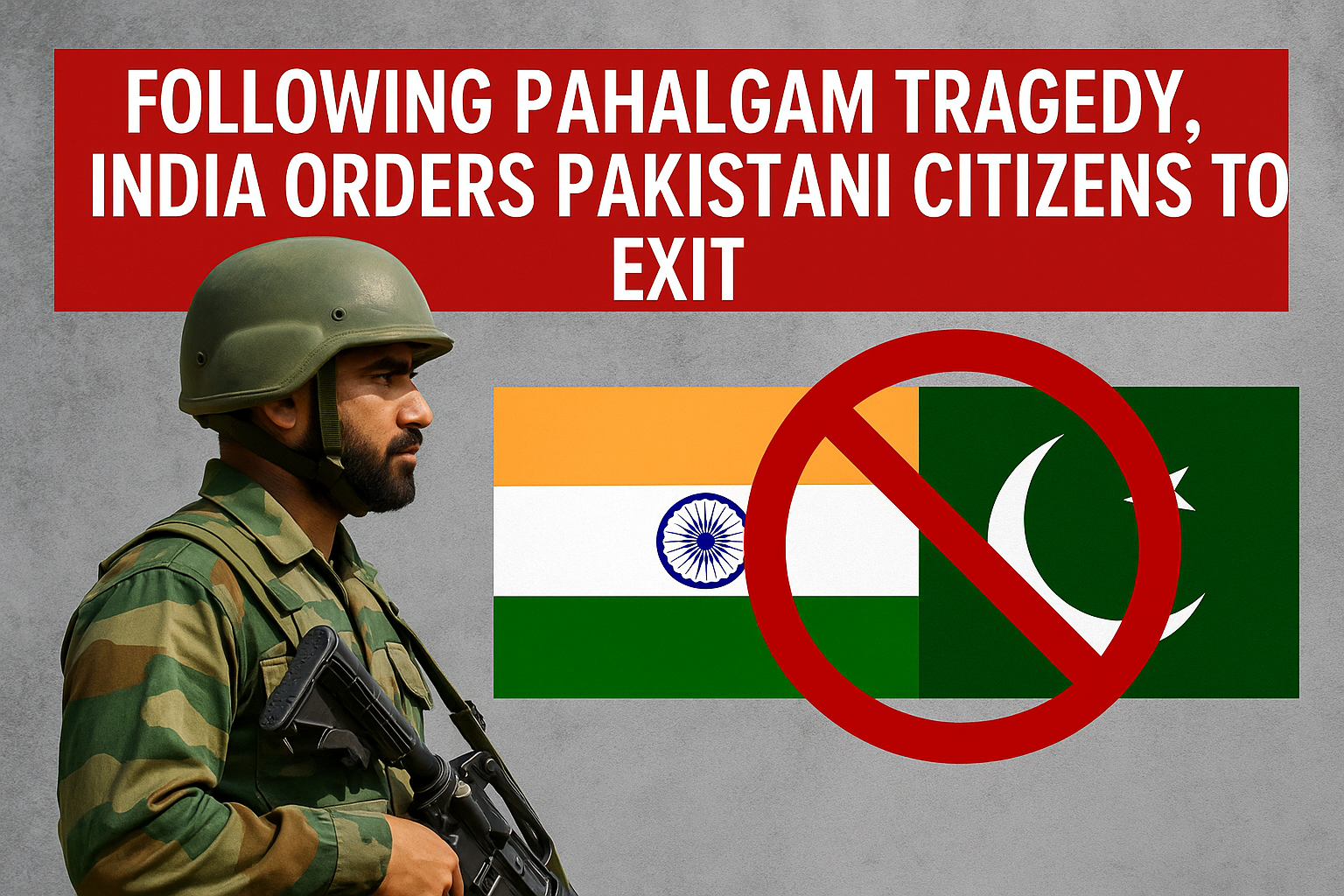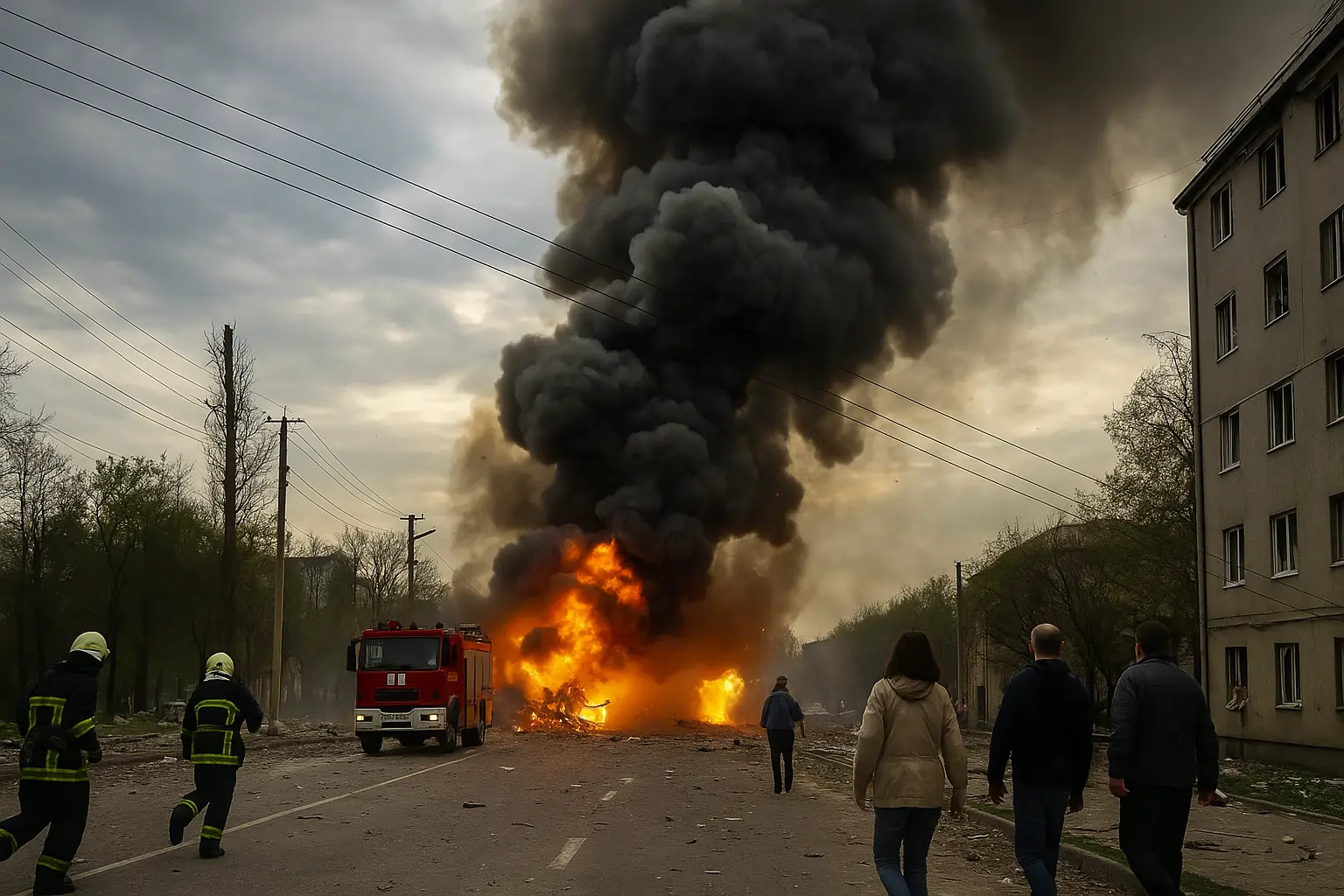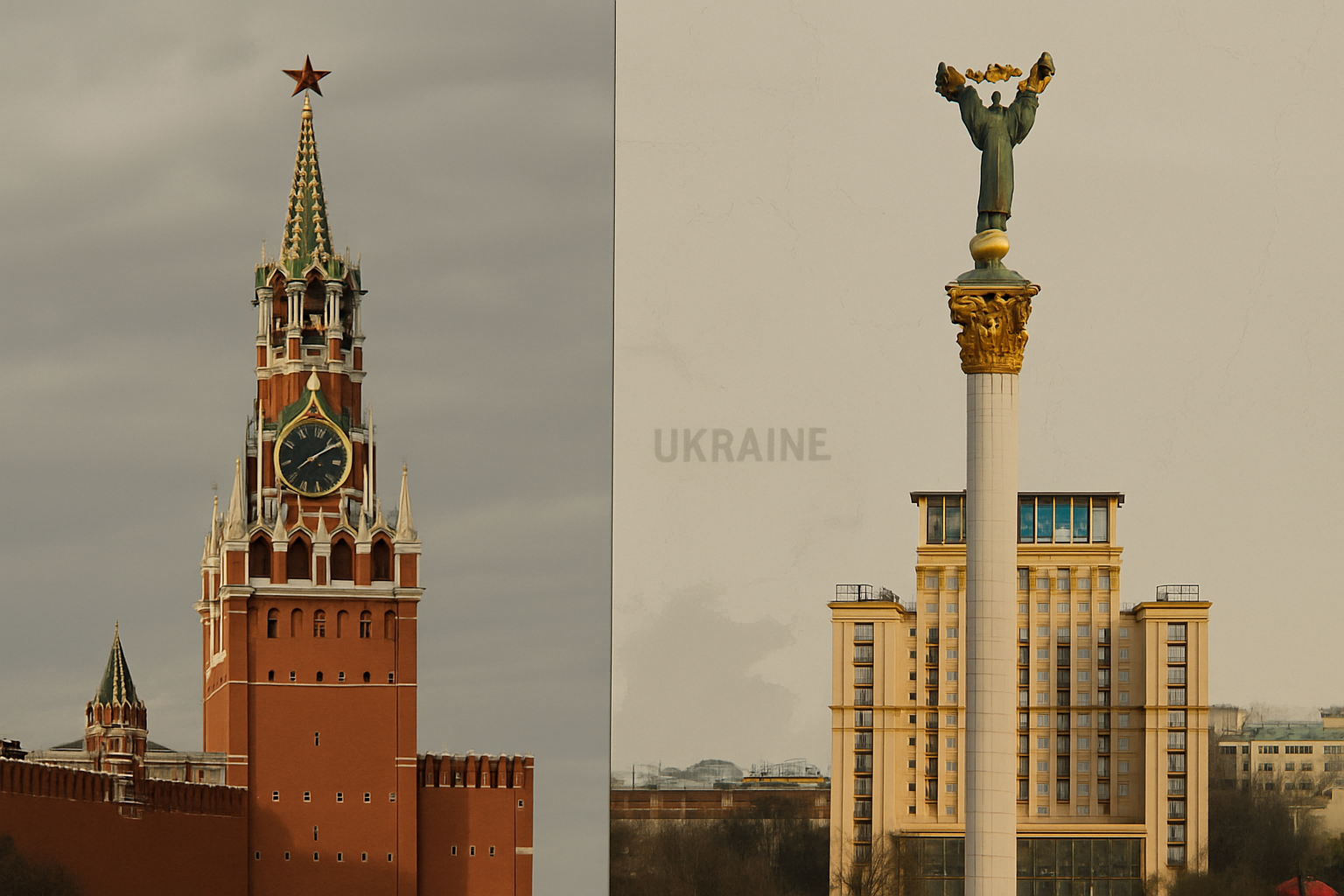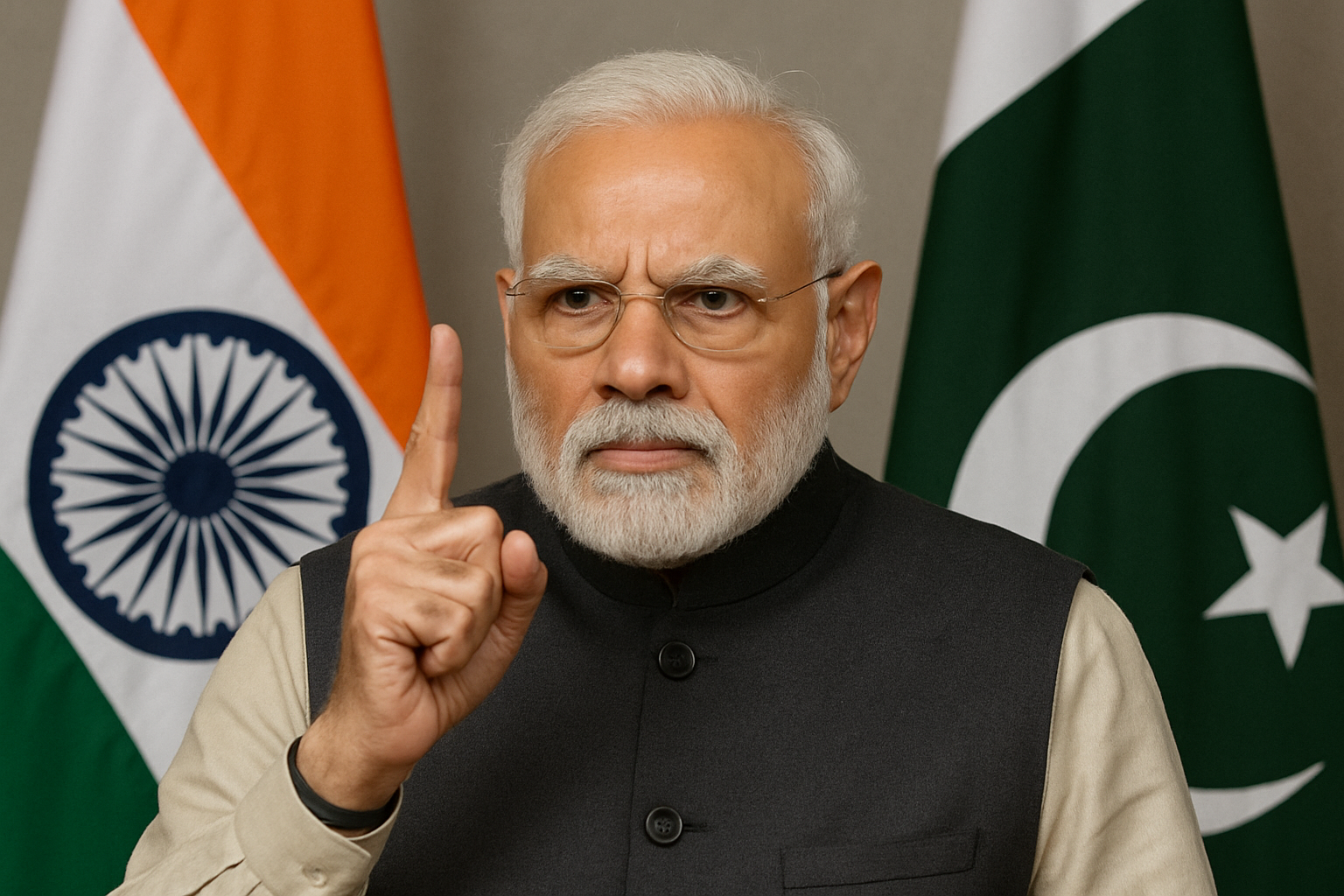New Delhi, April 25, 2025 — In a resounding and historic step, the Indian government has directed all Pakistani citizens present in the country to vacate within one week, in the aftermath of the heinous terror strike in Pahalgam, Jammu, and Kashmir, which killed a minimum of 12 and more than 20 were left injured. This is among a series of forceful retaliatory actions against Pakistan, which India has accused of sheltering and abetting terror groups that cross the border.
The Attack That Sparked a Diplomatic Firestorm
The accident took place on April 23 in the quaint hill town of Pahalgam, which is a favorite among tourists in the Himalayas. Militants indiscriminately fired at a convoy that consisted of civilians as well as security forces. Panic and chaos erupted in the congested market area as shots rang out. Two Central Reserve Police Force (CRPF) men and some local traders and tourists were among the dead.
Intelligence sources indicate that preliminary evidence suggests involvement by Pakistan-based terror group Jaish-e-Mohammed (JeM). Intercepted signals, markings on weapons, and survivor testimonies are being brought as evidence for cross-border connections.
India’s Firm Response
In reaction to the attack, the Indian government held an emergent high-security meeting chaired by Prime Minister Narendra Modi. In the wake of intense discussions, the government revealed a number of important steps:
Immediate Suspension of All Visas granted to Pakistani nationals, such as student, business, and tourist visas.
Expulsion Orders for Pakistani citizens already in India, with a 7-day time limit to depart the country.
Expulsion of Diplomats, with some Pakistani High Commission officials in New Delhi declared persona non grata and directed to depart from India within 48 hours.
Freezing of Bilateral Engagements, including cultural exchanges, trade negotiations, and backchannel diplomatic initiatives.
A government official said, “India cannot let its soil be repeatedly attacked by elements acting with impunity from Pakistani soil. The security of our citizens is paramount.”
International Reaction
The international reaction to the Pahalgam attack has been overwhelmingly in favor of India’s right to self-defense. Nations such as the United States, France, and Australia have denounced the attack and demanded accountability. Yet, most international observers have also called for restraint by both countries and against escalation.
The United Nations Secretary-General also released a statement regarding deep concern for the increased tensions in South Asia and called upon both nations to have a dialogue to prevent further escalation of the relationship.
Opposition and Public Sentiment
While the majority of Indian political parties have backed the government’s moves, some opposition leaders have urged restraint against blanket punitive actions that could impact innocent civilians. Congress leader Rahul Gandhi said, “We welcome a strong response to terror, but we must also ensure that innocent lives are not caught in the crossfire.
Public opinion, though, has been generally supportive of the government’s stance. Candlelight vigils and protests have taken place in major cities, demanding justice for the victims and a stronger approach towards cross-border terrorism.
Looking Ahead
With the 7-day deadline nearing, Pakistani citizens in India — including students, patients getting medical treatment, and business people — are racing to make it back home. Indian security forces, in turn, have increased vigilance and have sent more troops to sensitive areas, especially along the Line of Control (LoC) and in big cities.
The Pahalgam attack has again put the limelight back on Indo-Pak relations, which have been tense for years now because of repeated terror attacks. Whether this latest escalation is followed by a change in policy or another round of tit-for-tat remains to be seen.






